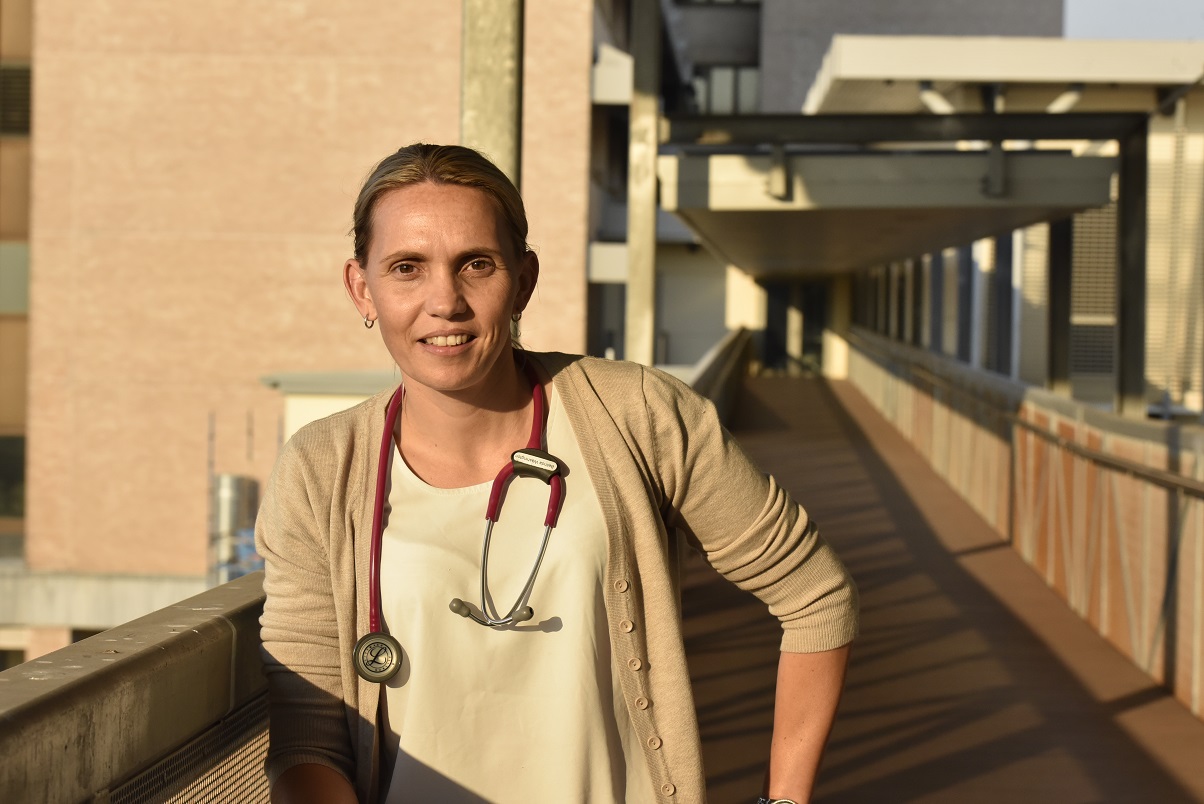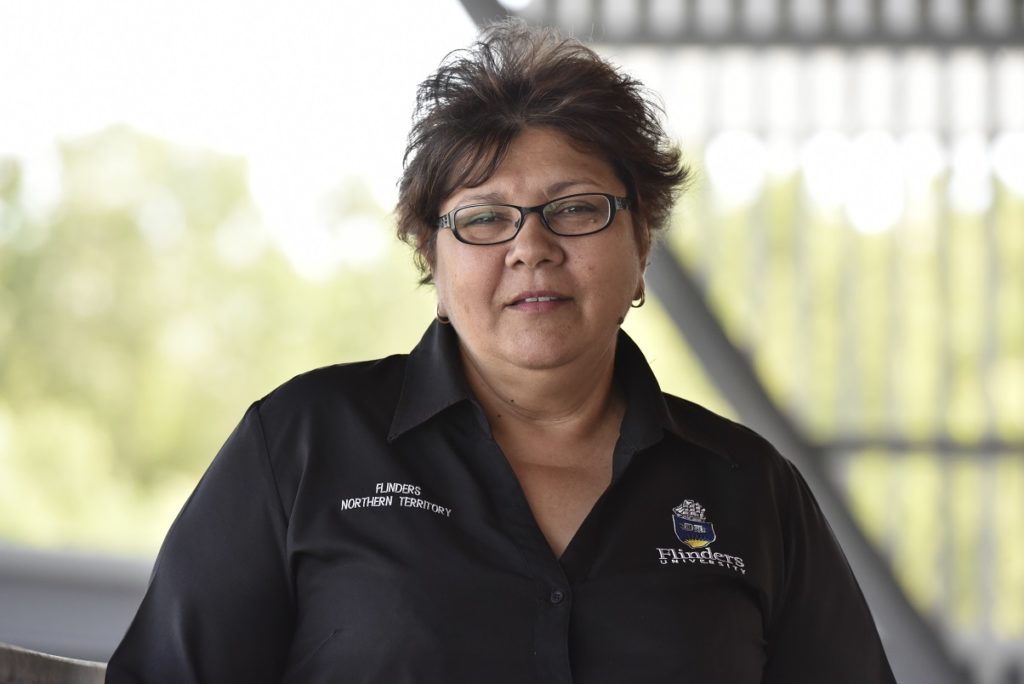
Aboriginal women working and studying with Flinders University in the Northern Territory are transforming health services for communities across northern and central Australia.
A new publication released to celebrate NAIDOC Week 2018 provides examples of the impact that Aboriginal women are having across Flinders’ seven NT sites. Using the NAIDOC theme Because of Her – We Can, Flinders NT staff and graduates talk about their remarkable journeys and efforts to improve health services for all Territorians, with a particular focus on Aboriginal people.
The driving force behind this new publication is Flinders NT Manager, Monica Barolits-McCabe, whose story also features in the publication.

“There is huge interest from around the world in the integration of culturally-sensitive innovations that improve our health system,” she says.
Flinders University is working with Charles Darwin University to teach a new generation of doctors through the Northern Territory Medical Program.
“The Centre for Remote Health and Poche Centre for Indigenous Health run courses that prepare all types of health professionals to work in this challenging and rewarding environment,” Ms Barolits-McCabe says.
“Our staff are also conducting an array of research projects which are making practical improvements to health services. We are involved in cutting edge research and teaching, adapting a high-quality western medical system to the local cultural context.
“We are really proud of the achievements of the Aboriginal women working with Flinders in the NT,” she says.
The new publication describes how Aboriginal women working for Flinders University are involved in an impressive range of projects. These include:
- helping doctors and other health workers in remote areas to understand Indigenous cultures, so they can improve the way they work with patients
- training non-clinical staff – such as security guards – working across the health system to understand Aboriginal community practices, to help reduce conflict and improve the experience of patients
- improving service acceptability by translating hospital menus so that Aboriginal people from remote communities can order food when they are patients in hospital
- making consent forms more comprehensible for Aboriginal patients
- examining the important links between art centres and health
Professor John Wakerman, Associate Dean of Flinders NT, says: “It’s time to shine a light on the extraordinary impact that the Aboriginal women working at Flinders are having on the Territory’s health system.
“Our staff may not feature on the front pages of newspapers, but their moving stories reflect the passion, perseverance and significance of their efforts. The common thread of these stories is the continuing strength and importance of Aboriginal culture in all aspects of life. I’m very pleased that this year NAIDOC Week provides an opportunity to celebrate our heroes,” Professor Wakerman says.
Other Media Coverage
NT News – Indigenous health worker changing lives in the Territory
Naidoc Week at Flinders University

